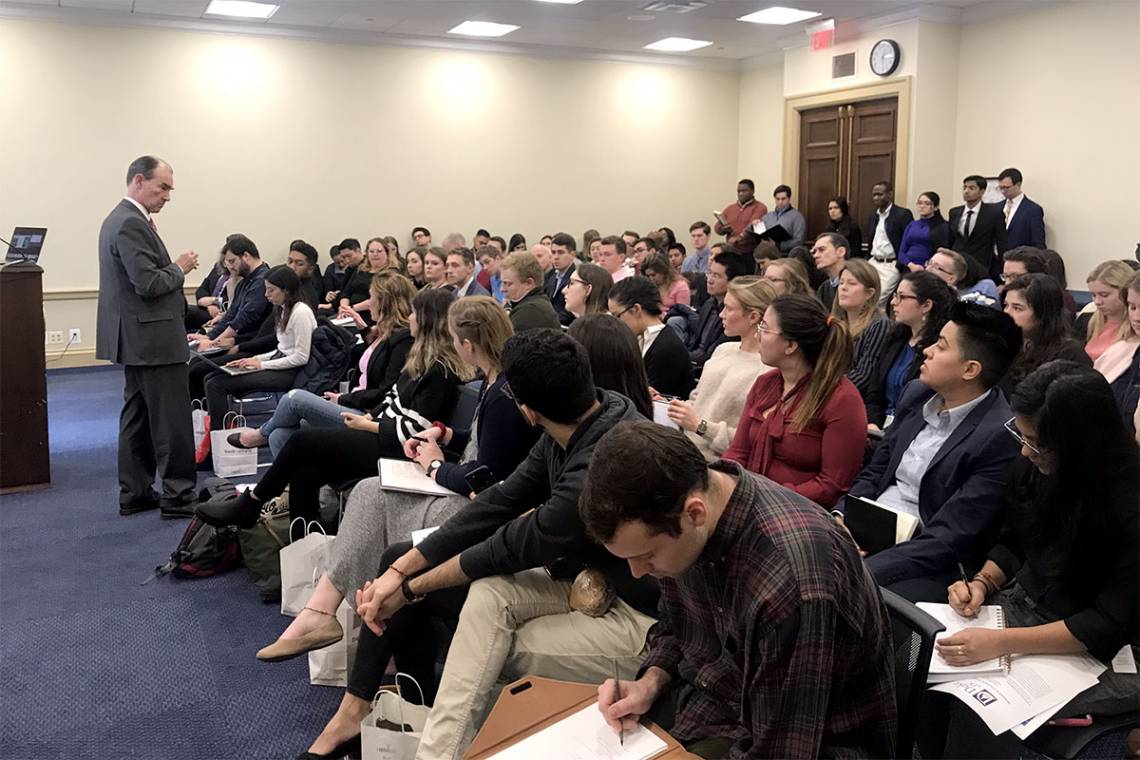Turning Venezuela Back into a Democracy Requires Patience, Duddy Tells DC Audience

The current crisis in Venezuela did not happen overnight and any fix to the situation won’t happen quickly either, said Patrick Duddy, a Duke professor and former U.S. ambassador to Venezuela in a March 1 briefing on Capitol Hill.
The event, hosted by Duke in DC, offered congressional staff, federal employees, foreign Embassy staff and members of the media the chance to learn about the situation in Venezuela from the ambassador’s expertise.
Before coming to Duke as director of the Center for Latin American and Caribbean Studies (CLACS), Patrick Duddy served as the U.S. ambassador to the Bolivarian Republic of Venezuela for both Presidents Bush and Obama from 2007 to 2010 when then-President Chavez ousted Duddy alleging a conspiracy to dislodge Chavez from power. Although U.S. embassy staff remain there, the Venezuelan government has not received an American ambassador since Duddy’s tenure.
The briefing came after a week of tense events in Venezuela. On Feb. 23, the Venezuelan opposition leader Juan Guaido tried to lead a convoy of American food and medical supplies across the border from Colombia into Venezuela only to be repelled by President Nicholas Maduro’s military loyalists. The program also came in the wake of Vice President Mike Pence’s trip to Colombia to meet with Gauido and to deliver a speech directed toward Maduro and the people of Venezuela.
Although the United States has a difficult history in Latin America, “The current situation within Venezuela and along the country’s borders with Colombia and Brazil is very dangerous but no one wants to see a civil war or inter-state conflict,” Duddy said. “I see no appetite for military intervention.”
Duddy noted the hyperinflation, rolling blackouts, food shortages and widespread street protests as the cumulation of a long-term mismanagement of the Venezuelan economic and political systems at the hands of Venezuelan leadership.
“The weakness of the Chavista socio-economic model was obscured for a time by unprecedently high oil prices,” he said. Now that “oil production in Venezuela has fallen by two million barrels a day since 1998 when Chavez was elected,” he continued, those problems cannot be papered over with cash flow.
Adding to the concerns, three million people have fled the country, which Duddy said was taxing the support services of Venezuela’s neighbors.
Duddy recommended that U.S. policymakers perhaps ought to employ the concept of strategic patience and understand that this crisis has a long, gradual history.